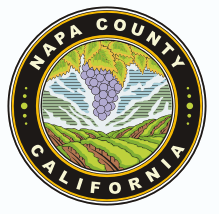This website uses cookies so that we can provide you with the best user experience possible. Cookie information is stored in your browser and performs functions such as recognising you when you return to our website and helping our team to understand which sections of the website you find most interesting and useful.
Napa County bites back in winery legal case
In December, California State Controller Malia Cohen demanded an explanation for why Napa County wants to ban tastings at some of its wineries. Now db can exclusively reveal the County’s reply…

Last month, a letter was shared with the drinks business, written by California State Controller Malia Cohen, who independently audits government agencies, addressed to senior personnel in the Napa County office.
Cohen felt compelled to weigh in on the ongoing legal dispute between Napa County and a number of Napa wineries over whether the latter have the right to serve wine to their customers on-site.
Now Napa County Counsel Sheryl. L. Bratton has sent a reply to the State Controller, contesting some of the claims Cohen made in her letter, sent in December.
What’s the case about?
The dispute centres around the legitimacy of permits secured by a handful of Napa wineries.
Hoopes Vineyard, Summit Lake Vineyards and Smith-Madrone Vineyards & Winery maintain they are legally entitled to hold tastings and tours of their estates because their permits were in place long before a law was passed in 1990, designed to limit tourist numbers in Napa.
Lindsay Hoopes, owner of Hoopes Vineyard, claims Napa County government is “using its police powers in a way that is completely rogue and devoid of legal merit” and the three wineries launched a federal complaint against the County in November 2023.
Media coverage of the conflict caught the attention of California State Controller Malia Cohen, who wrote a letter to Napa County in December 2023 seeking clarity over some aspects of the case.
“I am writing to request some information as to how a winery that has been paying taxes on wine poured at their property for 40 years was only recently found to have been illegally serving wine,” Cohen wrote.
“I am concerned as to how the state and county could have been collecting taxes from a small business for so many years for wine sold on the property, when allegedly it was not allowed to do so,” she continued.
What exactly, Cohen asked, had changed?

Napa County bats back concerns
This week, Napa County confirmed it had received the letter from Cohen and had penned a response.
“Napa County received the letter from the State Controller, which was opened just after the holiday break,” a spokesperson for the county told db.
In a letter shown to the drinks business, sent to Cohen on 8 January, Napa County responds to each of the matters highlighted in her earlier communication.
Napa County Counsel Sheryl. L. Bratton claims that while Hoopes Vineyard has a permit to sell bottles of wine on the property, it does not have a permit to carry out tastings.
Bratton maintains that due to Napa’s “zoning code”, on-premises consumption of wine is restricted to those wineries with a “use permit”, something which Hoopes does not have.
“Napa County generally refrains from commenting on matters in active litigation, such as the case the County has brought against Hoopes Winery to secure its compliance with the County’s zoning and building codes,” begins the reply, sent on Thursday 8 January 2024.
“However we would like to address three key misimpressions in your letter.”
“First, Hoopes Winery has only been operating at its current location since 2018. Hoopes has refused to get a use permit, which wineries must have in order to serve wine to customers.”
“Instead, Hoopes has been operating only under a Small Winery Permit Exemption, which a prior owner applied for in 1984.”
“The permit exemption allows Hoopes to sell wine produced on the property by the bottle, but it does not allow wine tasting without a use permit.”
Napa County says that it only discovered that Hoopes was “pouring wine for customers” in 2020, from which time the County has continually asked Hoopes to get a use permit.
In the letter it insists that “Hoopes Winery could also serve wine to guests if it would get a use permit, as requested.”
Bratton writes that she has “no authority” over permits previously issued to Hoopes by the State rather than the County.
Concluding the letter, Bratton writes: “If you have more questions about our efforts to enforce our local zoning requirements, we would like to invite you to visit so that we can discuss these issues in person.”
Napa County office told db that the cost of a use permit involves “an initial deposit of US$10,000, with a maximum surcharge of US$1,255.10, plus an hourly rate for departments as needed to obtain the permit.”
The hourly rate for a use permit starts from US$177 per hour. However, if a business wishes to modify an existing use permit it may accrue a one-off cost of up to US£5,128.
A trial between the three wineries and Napa County is slated for early this year.

